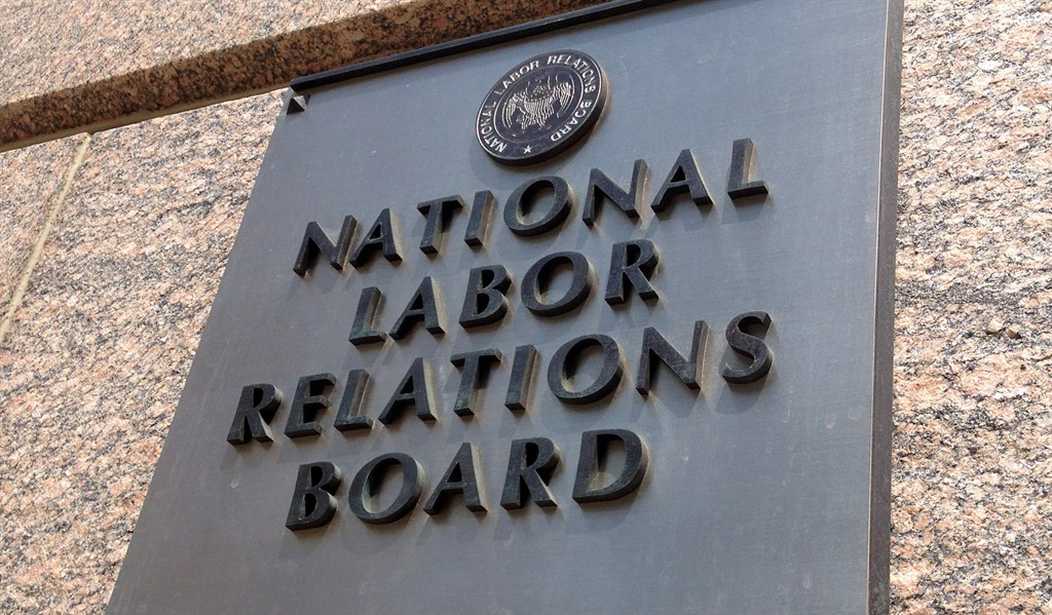The Supreme Court issued a nearly unanimous decision today in which the Justices sided with Starbucks over the National Labor Relations Board in a case involving 7 workers who were fired by the company in 2022.
The ruling came in a case brought by Starbucks over the firing of seven workers in Memphis who were trying to unionize a store in 2022. The company said it had fired them for allowing a television crew into a closed store, while the workers said that they were fired for their unionization efforts and that the company didn’t typically enforce the rules they were accused of violating.
After the firings, the National Labor Relations Board issued a complaint saying that Starbucks had acted because the workers had “joined or assisted the union and engaged in concerted activities, and to discourage employees from engaging in these activities.” Separately, lawyers for the board asked a federal judge in Tennessee for an injunction reinstating the workers, and the judge issued the order in August 2022.
Starbucks appealed to the 6th Circuit Court of Appeals and lost. Then it appealed to the Supreme Court arguing there were two different standards in place in various courts across the country.
In its petition to the Supreme Court, the company argued that federal courts had differing standards when deciding whether to grant injunctions that reinstate workers, which the N.L.R.B. has the authority to seek under the National Labor Relations Act.
Some apply a looser standard, requiring the labor board to show that there was “reasonable cause” to believe the company had violated labor law. Others use a stricter standard, requiring the board to show that not reinstating the workers would cause “irreparable harm,” and that the board was likely to prevail in the case.
In the decision issued today, Justice Clarence Thomas wrote that the lower "reasonable cause" standard meant the government could never lose.
Thomas argued that the standard the National Labor Relations Board had sought would make it too easy for the government to win in every conflict with an employer.
“In fact,” Thomas wrote, “it is hard to imagine how the Board could lose under the reasonable-cause test if courts deferentially ask only whether the Board offered a minimally plausible legal theory, while ignoring conflicting law or facts.”
During oral arguments for the case in April, the NLRB may have hurt itself a bit by arguing that the courts had to defer to its judgment. Justices on the left and right didn't like that.
But the power to force companies to reinstate fired union organizers is a significant one. There's a case right now in Arizona involving the struggling carmaker Lucid.
A hearing before the judge is already scheduled for Oct. 9. But Tucker Bingham, an attorney for the NLRB, said in a new filing that inaction from the court will unduly halt the workers' effort to join the United Auto Workers.
"(T)he reality is that enforcement of a final National Labor Relations Board (Board) Order is years away, and by that time the employees’ campaign will be beyond revival. Therefore, to prevent irreparable harm to employees’ rights and the Board’s remedial powers, Petitioner respectfully asks that this Court issue a preliminary injunction to ... require Respondent to offer interim reinstatement," Bingham wrote in the June 6 filing.
All of this is playing out against a bigger backdrop involving an NLRB that has been extremely aggressive in its support of union organizing during Biden's tenure. The Wall Street Journal published an editorial about it this week.
One target of the NLRB’s abuse is Stern Produce, a grocery distributor in Arizona. In 2021 the company issued a warning to two of its drivers for serious workplace violations: covering up a surveillance camera, and a threatening joke about a colleague’s sexual orientation. Both employees admitted to their actions, but Ms. McFerran ruled that the company’s warnings were illegal intimidation because the two workers had tried to unionize years earlier.
Dozens of rulings fit the same pattern, with the NLRB tearing up the rights of businesses or non-union workers. Its 2023 Cemex ruling is among the most destructive, making it easier for unions to gain recognition without winning workers’ support on a secret ballot. Ms. McFerran called the new standard “free and fair, and efficient,” but not so much for employers, nor the workers who will be pressured to join unions against their will.
These decisions send a clear message to employers: Roll over for union activists, or the NLRB will turn any management decision into a labor violation.
There are other cases making their way through the courts which argue the entire structure of the NLRB is unconstitutional. One of those is being brought by Space X. And, coincidentally, yesterday they won a small legal battle in that case.
SpaceX is facing an administrative action in the NLRB for allegedly firing employees who criticized owner Elon Musk. It filed its appeal in the Fifth Circuit after it was denied a preliminary injunction in the underlying suit...
SpaceX’s complaint in the underlying suit said that the administrative structure of the NLRB violates Article II of the US Constitution because the president doesn’t maintain sufficient removal control of the agency’s administrative judges.
Space X also argued that the structure of the NLRB, where Administrative Law Judges issues decisions from within the agency, violates the constitutional right to jury trial.
The NLRB asked for a stay to prevent the 5th circuit from moving forward with the case and yesterday a judge ruled against them. Space X's case will not proceed. And presumably, win or lose, this will eventually wind up before the Supreme Court. Hopefully that will provide the court with another opportunity to rein in the NLRB's power.








Join the conversation as a VIP Member